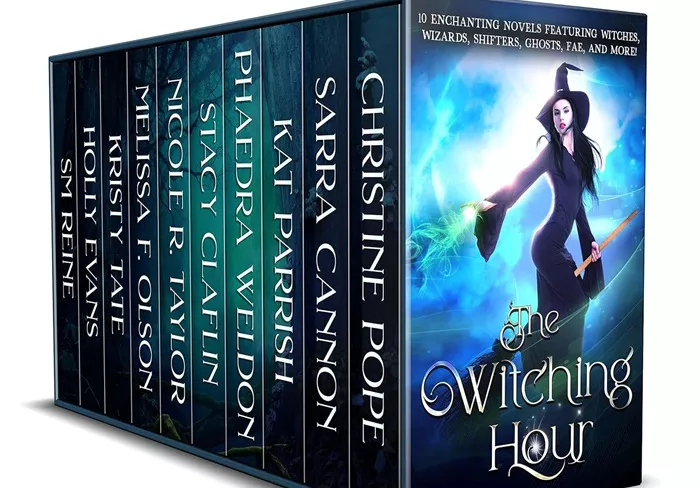Witches continue to captivate popular culture, appearing in everything from major film productions like Wicked to viral hits such as “Agatha All Along.” Yet, it is within the pages of novels where the most nuanced and imaginative portrayals of witchcraft come to life — spanning decades of literary tradition.
Award-winning author Charlie Jane Anders, known for her best-selling novel All the Birds in the Sky and her forthcoming Lessons in Magic and Disaster (releasing this August), shares her personal selection of some of the most magical and thought-provoking books about witches.
Lolly Willowes by Sylvia Townsend Warner (1926)
This early 20th-century satirical fantasy follows Laura Willowes, who escapes her London family’s demands to live freely in a rural village. When family obligations intrude again, she makes a pact with Satan and embraces witchcraft, discovering a secret community of witches in her new home. Warner’s novel combines wit and dark humor to explore themes of independence and social conformity.
The Forgotten Beasts of Eld by Patricia A. McKillip (1974)
McKillip’s classic fantasy centers on Sybel, a powerful young sorceress living with magical creatures atop a mountain. After being entrusted with a royal child, Sybel becomes entangled in political intrigue and embarks on a perilous quest involving mythical beasts. The novel is a lyrical exploration of love, power, and consequence.
Witch Week by Diana Wynne Jones
Set in an alternate world where witchcraft is outlawed, Witch Week is a coming-of-age tale at Larwood House, a boarding school for children of executed witches. When rumors surface about a witch among the students, chaos ensues, especially for two bullied pupils discovering their own magical abilities. Jones blends social commentary with charm and wit in this installment linked to her broader Chrestomanci universe.
The Wee Free Men by Terry Pratchett
The first book in Pratchett’s Tiffany Aching series, part of the renowned Discworld saga, this novel follows a young witch learning to harness her powers amid personal loss. Accompanied by mischievous fae creatures known as the Wee Free Men, Tiffany confronts themes of grief and mortality with Pratchett’s signature humor and warmth.
A Discovery of Witches by Deborah Harkness
Historian-turned-author Harkness crafts the story of Diana Bishop, a scholar and reluctant witch who discovers a magical manuscript at Oxford University. Her newfound powers attract the attention of vampire Matthew Clairmont, setting off a narrative rich in historical detail, magical politics, and romance.
The Memory Garden by Mary Rickert
In this gentle, early example of “cozy fantasy,” Nan, the town witch, raises an unexpected child while contending with local hostility and personal secrets. Rickert’s novel is a tender meditation on family, mortality, and the quiet magic found in everyday life.
The Women Could Fly by Megan Giddings
Giddings presents a dystopian world where unmarried women are accused of witchcraft and restricted, highlighting the disproportionate control exerted on Black women. Following Jo’s journey after her mother’s disappearance, the novel explores themes of systemic oppression and resilience.
The Very Secret Society of Irregular Witches by Sangu Mandanna
This cozy paranormal romance delves into a secretive witch society governed by isolation to preserve secrecy. Protagonist Mika Moon breaks the rules to teach young witches at a remote estate, confronting loneliness and the challenges of power. Mandanna’s novel balances quirky characters with deeper reflections on community and survival.
Through these diverse narratives, Anders showcases the multifaceted nature of witches in literature — from rebellious outsiders and political players to nurturing caretakers and survivors. These novels not only enchant but also provoke thoughtful engagement with identity, power, and belonging.

